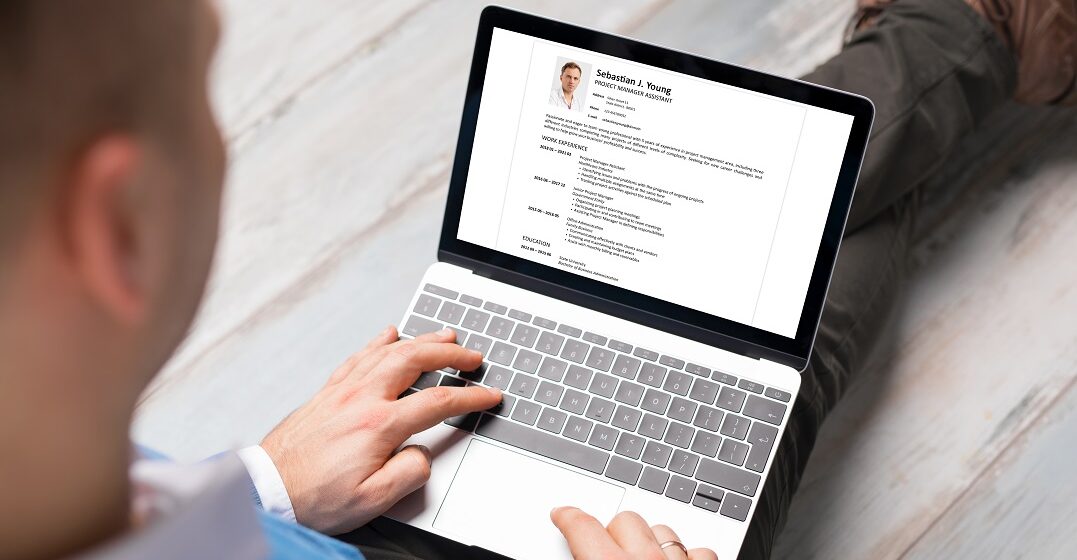by Laura Jones
Updated on April 26, 2023
Want to apply for a job with an American company? Fancy working as a barista in Australia? Whatever job you want to get, you’re going to need a CV (curriculum vitae) or a resume, as some people may call it. Knowing how to write a relevant CV in English or any other language goes beyond listing your work experience and education. It’s a snapshot of you and your achievements and you need to sell yourself. Since not all of us are marketing experts, read on for some tips to create the perfect CV for an English workplace. Usually, you’ll need a cover letter to go along with your CV and you can read more about that here.
Shockingly, you need to write your name. No funny nicknames here: writing ‘James Jenkins, AKA Jenky’ is unnecessary. Your contact details are important but don’t include your work email or phone number. You don’t need to write your full address, but your town and country location are important. You can leave off your marital status and date of birth; employers in English-speaking countries are not allowed to ask for these details to prevent discrimination.
Most CVs include a few lines below the contact details which serve as an introduction to you. Here is where you can really sell yourself in a concise way. Use buzzwords that will stand out to your employer. You will probably need to change your personal statement for every job you apply for. Here are some examples of sentences you might use in a personal statement:
List your employment history in reverse chronological order. Decide what is relevant to the position you are applying for: if you have been working as an accountant for over 10 years, then your bar job while at university doesn’t need to be on your CV. You should also list quantifiable achievements, your responsibilities, and general accomplishments – make use of bullet points to do this for each job. Look at these examples:
Again, in reverse chronological order. The most important listings will be any university degrees or college diplomas, and perhaps your final high school exams. If the topic of your thesis is relevant to your job, list that too. Here are some examples of how to list your academic achievements.
MSc in Environment Management (Distinction)
Thesis title: ‘Waste Water Management in Warsaw’
Level 3 Diploma in Carpentry
You might think it’s obvious that you speak English if your CV is written in the language, but it’s important to show employers to what level you speak any foreign languages.
Speaking more than one language will probably give you a leg up over native English speakers who are generally abysmal at learning other languages.
Again, you might think that everyone knows how to use Microsoft Word, but it’s definitely worth writing that kind of thing down. Note any software or programs you can use which might be relevant.
Got a first Aid certificate? Brilliant, list it. Organized a yearly bake sale for your children’s school? Put it down – it shows organizational skills and a commitment to your community. Drunk a pint in every pub in your city? That one should remain between you and your friends.
When you consider how to write a CV in English, the debate is raging over whether to include a photograph on it. In continental Europe, it’s the norm to have a professional headshot on your CV. However, in the UK, the US, and Canada, it’s not normal practice; a photo won’t get you discounted from the process, but most residents of those countries won’t include one. But, most CVs include links to your social media accounts or LinkedIn, so if the employer wants to see what you look like, they can. Honestly, the jury’s out on this one, so make up your own mind.
Separate your CV by using headings so it is easy to navigate. Use a basic font such as Calibri or Garamond. Your CV should be in black ink. You can throw this advice out of the window if you’re applying for the hippest design company your country has ever seen. Go wild.
When you are learning how to write a CV in English, some details might take a moment to refine. However, it is worth taking the time and look for:
Looking for a job can be daunting and wanting to make the best possible impression is your goal. That is why having the basics on how to write an eye-catching but relevant CV is paramount. Now that we shared with you the fundamentals to achieve just that, get drafting it (check also what to do for best results with your cover letter) and brush up on your interview skills. You got this!
